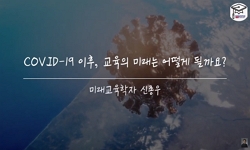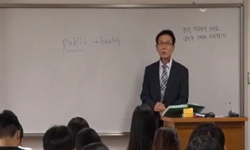2019년 12월 중국 우한(武漢)시에서 발생한 바이러스성 호흡기 질환인 코로나바이러스감염증-19와 관련한 우리나라의 방역 및 대응인 K-방역은 현재 전세계적으로 모범적인 모델로 각광받고 ...
http://chineseinput.net/에서 pinyin(병음)방식으로 중국어를 변환할 수 있습니다.
변환된 중국어를 복사하여 사용하시면 됩니다.
- 中文 을 입력하시려면 zhongwen을 입력하시고 space를누르시면됩니다.
- 北京 을 입력하시려면 beijing을 입력하시고 space를 누르시면 됩니다.

감염병예방법 상 감염병의심자 정보 제공 요청제도의 헌법적 문제점 = The Constitutional Problems of the Request System for Provision of Information of Person Suspected of Contracting an Infectious Disease under the Infectious Disease Control and Prevention Act
한글로보기https://www.riss.kr/link?id=A107375083
- 저자
- 발행기관
- 학술지명
- 권호사항
-
발행연도
2021
-
작성언어
-
-
주제어
코로나바이러스감염증-19 ; 감염병 ; 감염병예방법 ; 감염병의심자 ; 행정조사 ; 영장주의 ; 적법 ; 절차원칙 ; 개인정보자기결정권 ; COVID-19 ; Infectious Disease ; the Infectious Disease Control and Prevention Act ; Person Suspected of Contracting an Infectious Disease ; Administrative Investigation ; Warrant System ; Due Process of Law ; Right to Self-Determination of Personal Information
-
등재정보
KCI등재
-
자료형태
학술저널
-
수록면
1-34(34쪽)
-
KCI 피인용횟수
0
- 제공처
- 소장기관
-
0
상세조회 -
0
다운로드
부가정보
국문 초록 (Abstract)
첫째, 수집되는 정보주체의 범위에 포함되어 있는 감염병의심자라는 개념과 관련하여, 감염병의심자의 범위가 포괄적이고 광범위하다는 점에서 명확성원칙 위반의 의심이 있다.
둘째, 권력적 행정조사로서의 법적 성격을 갖고 있는 감염병의심자 정보 제공 요청제도는 감염병의심자의 개인정보를 정보주체의 사전동의 없이 강제적으로 수집할 수 있게 하는데, 이러한 강제적 수집이 법관의 영장 없이 가능하다는 점에서 영장주의 위반의 의심이 있다.
셋째, 압수·수색에 준하는 목적의 권력적 행정조사로서의 성격을 가지는 감염병의심자 정보 제공 요청제도는 행정의 효율성에만 치우쳐있고, 절차적 통제장치는 미흡하여 적법절차원칙 위반의 의심이 있다.
넷째, 감염병의심자 정보 제공 요청제도는 과잉금지원칙에 반하여 개인정보자기결정권을 침해할 가능성이 높다.
다섯째, 감염의심자 정보 제공 요청제도가 위헌은 아니라고 할지라도, 개인정보자기결정권의 보장이라는 관점에서 볼 때, 향후 입법적으로 개선될 필요가 있다.
2019년 12월 중국 우한(武漢)시에서 발생한 바이러스성 호흡기 질환인 코로나바이러스감염증-19와 관련한 우리나라의 방역 및 대응인 K-방역은 현재 전세계적으로 모범적인 모델로 각광받고 있다. 우리나라의 코로나19 대응전략은 민주성, 투명성, 개방성 등으로 요약될 수 있는데, 이러한 전략의 수행과정에서 개인정보의 활용은 필수적이다. 향후 감염병 예방 시스템의 점검 및 개선에 있어서는, 감염병 예방 및 확산 방지라는 공익과 개인의 인권 간의 충돌을 어떻게 조화시킬 것인가라는 문제가 매우 중요하게 등장할 것이다. 특히 감염병 예방 및 확산 방지를 포함한 공중보건시스템의 효율성 도모와 개인정보를 포함한 프라이버시 보호의 문제를 균형있게 조화시킬 수 있는 방안을 모색할 필요가 있다. 이러한 문제제기에서 출발하여, 이 연구는 감염병예방법 제76조의2가 채택하고 있는 감염의심자 정보 제공 요청제도의 헌법적 문제점을 분석하고, 보다 헌법합치적이고 인권친화적인 개선방안을 제시하고 있다. 연구의 결과를 정리하면 다음과 같다.
첫째, 수집되는 정보주체의 범위에 포함되어 있는 감염병의심자라는 개념과 관련하여, 감염병의심자의 범위가 포괄적이고 광범위하다는 점에서 명확성원칙 위반의 의심이 있다.
둘째, 권력적 행정조사로서의 법적 성격을 갖고 있는 감염병의심자 정보 제공 요청제도는 감염병의심자의 개인정보를 정보주체의 사전동의 없이 강제적으로 수집할 수 있게 하는데, 이러한 강제적 수집이 법관의 영장 없이 가능하다는 점에서 영장주의 위반의 의심이 있다.
셋째, 압수·수색에 준하는 목적의 권력적 행정조사로서의 성격을 가지는 감염병의심자 정보 제공 요청제도는 행정의 효율성에만 치우쳐있고, 절차적 통제장치는 미흡하여 적법절차원칙 위반의 의심이 있다.
넷째, 감염병의심자 정보 제공 요청제도는 과잉금지원칙에 반하여 개인정보자기결정권을 침해할 가능성이 높다.
다섯째, 감염의심자 정보 제공 요청제도가 위헌은 아니라고 할지라도, 개인정보자기결정권의 보장이라는 관점에서 볼 때, 향후 입법적으로 개선될 필요가 있다.
다국어 초록 (Multilingual Abstract)
First, regarding the concept of person suspected of contracting an infectious disease included in the scope of the information subject to be collected, there is a suspicion of violation of the principle of clarity in that the range of person suspected of contracting an infectious disease is comprehensive and over-broad.
Second, the system for requesting information on person suspected of contracting an infectious disease, which has a legal character as a powerful administrative investigation, allows for compulsory collection of personal information of person suspected of contracting an infectious disease without the prior consent of the data subject, and that such compulsory collection is possible without a warrant from a judge. In this regard, there is a suspicion of a violation of warrant system.
Third, the system for requesting information on person suspected of contracting an infectious disease, which has a legal character as a powerful administrative investigation for the purpose of seizure and search is focused only on administrative efficiency, and the procedural control device is insufficient, so there is suspicion of violation of the principle of due process of law.
Fourth, the system for requesting information on person suspected of contracting an infectious disease is highly likely to infringe on the right to self-determination of personal information, contrary to the principle of proportion.
Fifth, even if the system for requesting information on person suspected of contracting an infectious disease is not unconstitutional, from the perspective of guaranteeing the right to self-determination of personal information, it needs to be improved legislatively in the future.
K-Defense, Korea's quarantine and response to Coronavirus Infection-19, a viral respiratory disease that occurred in Wuhan, China in December 2019, is currently in the spotlight as an exemplary model worldwide. Korea's strategies for responding to Cor...
K-Defense, Korea's quarantine and response to Coronavirus Infection-19, a viral respiratory disease that occurred in Wuhan, China in December 2019, is currently in the spotlight as an exemplary model worldwide. Korea's strategies for responding to Corona 19 can be summarized as democracy, transparency, and openness, and the use of personal information in the process of implementing these strategies is essential. In the future check and improvement of the infectious disease prevention system, the question of how to reconcile the conflict between the public interest of preventing infectious diseases and the human rights of individuals will be very important. In particular, there is a need to find a way to balance the issues of promoting the efficiency of the public health system, including the prevention of infectious diseases, and the protection of privacy including personal information. Starting from raising these issues, this study analyzes the constitutional problems of the system for requesting information on person suspected of contracting an infectious disease adopted by Article 76-2 of the Infectious Disease Prevention Act, and proposes more constitutional and human rights-friendly improvement measures. The results of the study are summarized as follows.
First, regarding the concept of person suspected of contracting an infectious disease included in the scope of the information subject to be collected, there is a suspicion of violation of the principle of clarity in that the range of person suspected of contracting an infectious disease is comprehensive and over-broad.
Second, the system for requesting information on person suspected of contracting an infectious disease, which has a legal character as a powerful administrative investigation, allows for compulsory collection of personal information of person suspected of contracting an infectious disease without the prior consent of the data subject, and that such compulsory collection is possible without a warrant from a judge. In this regard, there is a suspicion of a violation of warrant system.
Third, the system for requesting information on person suspected of contracting an infectious disease, which has a legal character as a powerful administrative investigation for the purpose of seizure and search is focused only on administrative efficiency, and the procedural control device is insufficient, so there is suspicion of violation of the principle of due process of law.
Fourth, the system for requesting information on person suspected of contracting an infectious disease is highly likely to infringe on the right to self-determination of personal information, contrary to the principle of proportion.
Fifth, even if the system for requesting information on person suspected of contracting an infectious disease is not unconstitutional, from the perspective of guaranteeing the right to self-determination of personal information, it needs to be improved legislatively in the future.
참고문헌 (Reference)
1 황성기, "현행 통신비밀 보호법제의 헌법적 문제점" (사)한국언론법학회 14 (14): 1-32, 2015
2 정종섭, "헌법학원론" 박영사 2018
3 권영성, "헌법학원론" 법문사 2010
4 성낙인, "헌법학" 법문사 2020
5 한수웅, "헌법학" 법문사 2020
6 김하열, "헌법강의" 박영사 2018
7 허완중, "헌법 으뜸편 – 기본권론-" 박영사 2020
8 박균성, "행정법론(상)" 박영사 2020
9 김남철, "행정법강론" 박영사 2020
10 김동희, "행정법 Ⅰ" 박영사 2016
1 황성기, "현행 통신비밀 보호법제의 헌법적 문제점" (사)한국언론법학회 14 (14): 1-32, 2015
2 정종섭, "헌법학원론" 박영사 2018
3 권영성, "헌법학원론" 법문사 2010
4 성낙인, "헌법학" 법문사 2020
5 한수웅, "헌법학" 법문사 2020
6 김하열, "헌법강의" 박영사 2018
7 허완중, "헌법 으뜸편 – 기본권론-" 박영사 2020
8 박균성, "행정법론(상)" 박영사 2020
9 김남철, "행정법강론" 박영사 2020
10 김동희, "행정법 Ⅰ" 박영사 2016
11 김남진, "행정법 Ⅰ" 법문사 2017
12 허영, "한국헌법론" 박영사 2020
13 정문식, "코로나위기와 헌법국가 -독일에서의 코로나위기 대응에 대한 헌법적 논의를 중심으로-" 헌법재판연구원 7 (7): 77-116, 2020
14 사단법인 정보인권연구소, "코로나19와 정보인권" 2020
15 김재광, "코로나19시대 행정법의 대응 - 「감염병예방법」을 중심으로-" 한국법제연구원 (59) : 177-214, 2020
16 정종구, "코로나19 동선공개에 대한 법적 고찰 - 개인정보 및 사생활 침해의 문제를 중심으로 -" 법학연구원 (70) : 103-131, 2020
17 한웅희, "압수・수색이 요구되는 행정조사에서의 영장주의" 한양대학교 2018
18 장진환, "안심밴드 착용에 대한 법적 쟁점의 검토" 법과사회이론학회 (64) : 143-178, 2020
19 황성기, "불법정보에 대한 방송통신위원회의 취급거부・정지・제한명령제도의 헌법적 및 합헌적 해석・적용의방향 - 한총련 웹사이트 폐쇄사건을 중심으로 -" 서울대학교 법학평론 편집위원회 6 : 2016
20 이헌환, "대한민국 헌법사전" 박영사 2020
21 권건보, "감염병 위기 대응과 정보인권" 한국비교공법학회 21 (21): 3-31, 2020
22 박원규, "감염병 영역에서의 경찰권 행사 - 코로나19 대응에 있어 경찰작용의 법적근거와 한계 -" 법학연구소 37 (37): 95-117, 2020
23 정태종, "「감염병 예방 및 관리에 관한 법률」의 내용과 개선방안" 한국법학회 20 (20): 289-316, 2020
24 민주사회를 위한 변호사모임, "2020헌마1028 헌법소원심판청구서"
동일학술지(권/호) 다른 논문
-
독일의 주택임대차법제도의 발전과정에 대한 연구 ― 정치·사회·문화적 배경을 중심으로 ―
- 한양대학교 법학연구소
- 이도국 ( Lee¸ Do-kook )
- 2021
- KCI등재
-
- 한양대학교 법학연구소
- 이재명 ( Lee¸ Jae-myung )
- 2021
- KCI등재
-
지능형 미디어 영역의 알 권리에 관한 공법적 고찰 ― 알고리즘 기반 추천 시스템에 대한 이용자 권익 보장의 관점에서 ―
- 한양대학교 법학연구소
- 권은정 ( Kwon¸ Eun-jeong )
- 2021
- KCI등재
-
- 한양대학교 법학연구소
- 조영석 ( Cho¸ Young-suk )
- 2021
- KCI등재
분석정보
인용정보 인용지수 설명보기
학술지 이력
| 연월일 | 이력구분 | 이력상세 | 등재구분 |
|---|---|---|---|
| 2026 | 평가예정 | 재인증평가 신청대상 (재인증) | |
| 2020-01-01 | 평가 | 등재학술지 유지 (재인증) |  |
| 2017-01-01 | 평가 | 등재학술지 유지 (계속평가) |  |
| 2013-01-01 | 평가 | 등재학술지 선정 (등재후보2차) |  |
| 2012-01-01 | 평가 | 등재후보 1차 PASS (등재후보1차) |  |
| 2011-01-01 | 평가 | 등재후보학술지 유지 (등재후보1차) |  |
| 2010-06-17 | 학회명변경 | 영문명 : 미등록 -> The Institute for Legal Studies |  |
| 2010-01-01 | 평가 | 등재후보학술지 유지 (등재후보2차) |  |
| 2009-01-01 | 평가 | 등재후보 1차 PASS (등재후보1차) |  |
| 2008-01-01 | 평가 | 등재후보 1차 FAIL (등재후보2차) |  |
| 2007-01-01 | 평가 | 등재후보 1차 PASS (등재후보1차) |  |
| 2005-01-01 | 평가 | 등재후보학술지 선정 (신규평가) |  |
학술지 인용정보
| 기준연도 | WOS-KCI 통합IF(2년) | KCIF(2년) | KCIF(3년) |
|---|---|---|---|
| 2016 | 0.78 | 0.78 | 0.74 |
| KCIF(4년) | KCIF(5년) | 중심성지수(3년) | 즉시성지수 |
| 0.75 | 0.76 | 0.82 | 0.14 |





 KCI
KCI KISS
KISS







